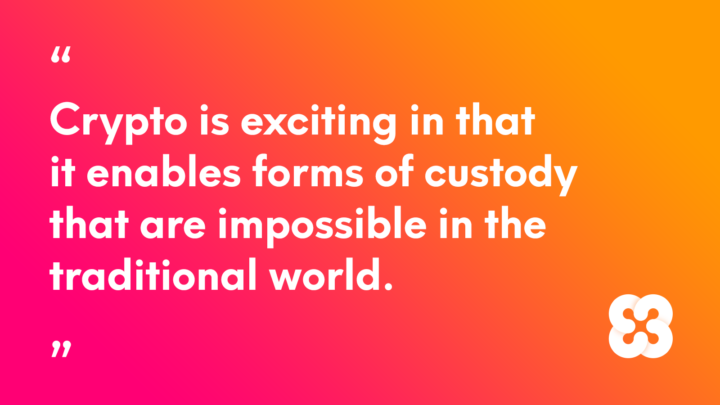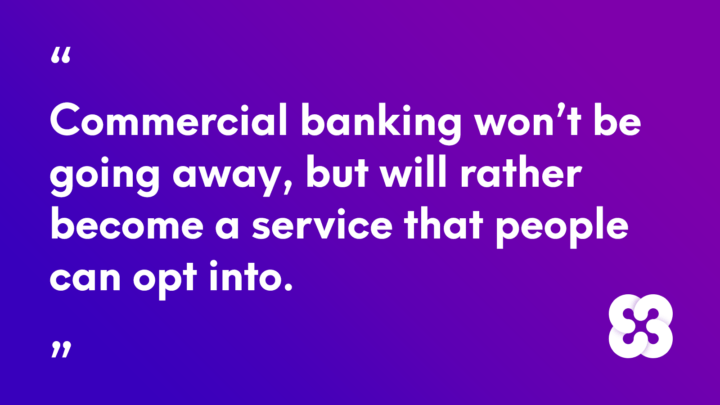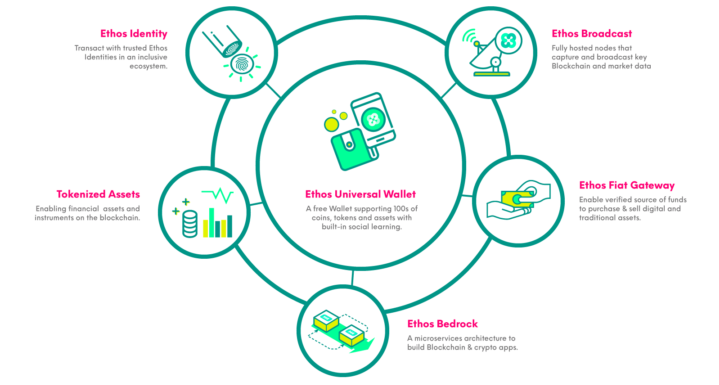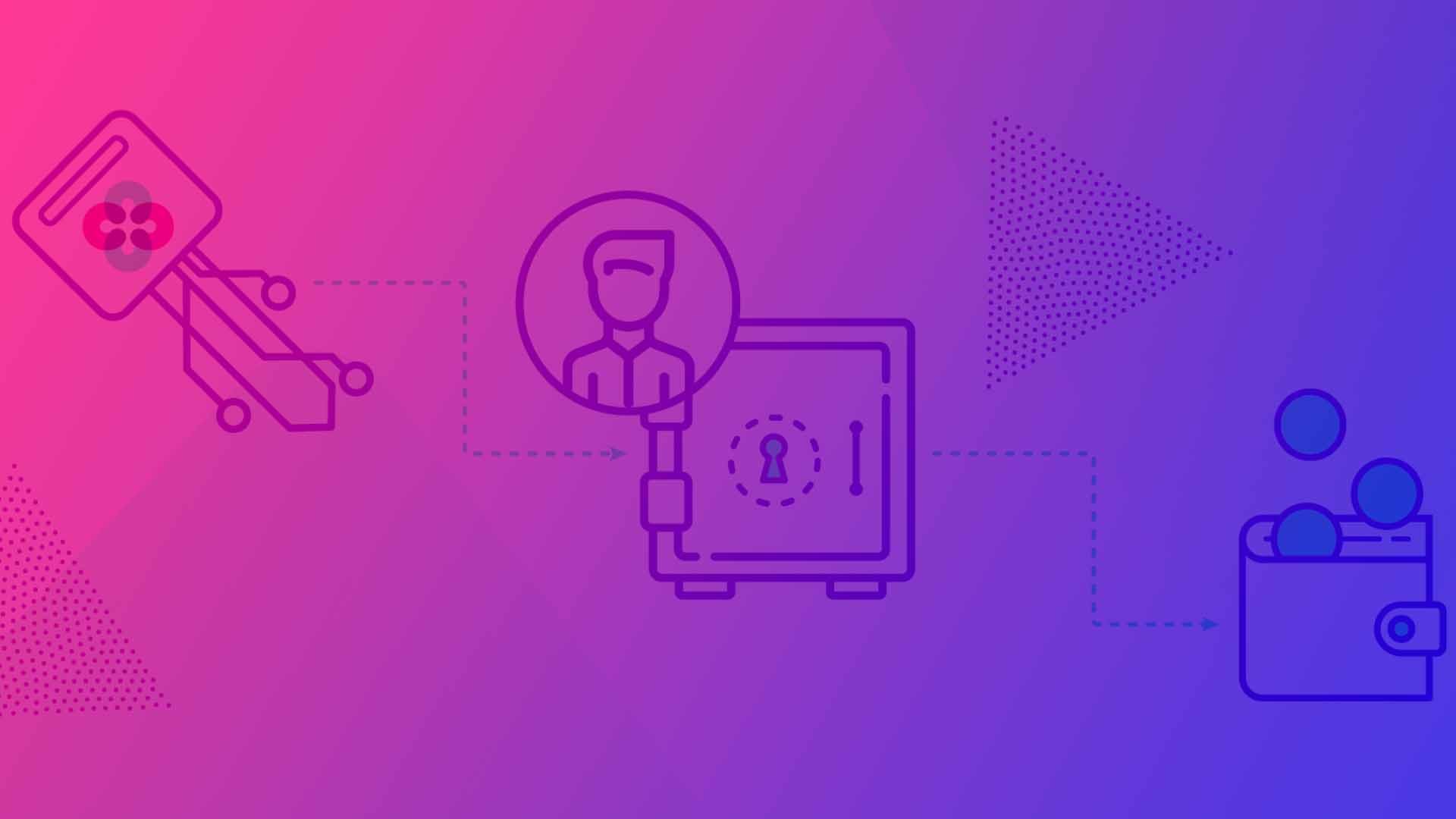
Hey Everyone!
Shingo here this time for the Ethos Educational Series to talk to you a little bit about custody. On the previous segment of this series, Stephen Corliss talked about many ideas relating to the legal framework of how a “decentralized digital asset based system” fits into the wider capital markets scene from a regulatory perspective. There are a ton of big ideas in that piece, but one of the most important that we will continue to highlight is the issue of custody.
Myself and Stephen engage every day on Telegram and answer big questions relating to the vision and mission of Ethos. We at Ethos believe in community engagement and in educating our audience. In the spirit of Socrates and the format of Telegram, this piece is structured as a dialogue for you to better understand the complex issues that surround the traditional industry and how the crypto industry is poised to change it all.
Scientia sit Potentia – “Let Knowledge be Power”
Hey Shingo, so what is custody?
Well, the legal definition of custody is in rule 206(4)-2(c)(1) which is defined as the following:
Custody means holding, directly or indirectly, client funds or securities, or having any authority to obtain possession of them. You have custody if a related person holds, directly or indirectly, client funds or securities, or has any authority to obtain possession of them, in connection with advisory services you provide to clients.
For an example of this we turn to the SEC who states, “advisers have custody where the adviser has possession of client funds and securities or has power of attorney to sign checks on a client’s behalf, to withdraw funds or securities from the client’s account, including fees, or to otherwise dispose of a client’s assets for any purpose other than authorized trading.”
While this is the U.S. definition, OECD (Organisation for Economic Co-operation and Development) jurisdictions, which include many of the world’s developed economies, follow similar definitions. With the legal definition in mind, the concept of custody is quite simple.
Think of a custodian as anyone who holds assets which aren’t theirs. Banks custodize funds that you deposit with them. Your brokerage has custody over the securities you buy. Qualified Custodians are an integral component of existing capital markets and collectively hold very large sums of wealth. It is very likely that unless you hold all of your money in cash or cryptocurrency and live completely detached from the financial system, that you have some percentage of your assets are stored with a custodian.
…and that isn’t necessarily a bad thing! Custodians provide many important services that power traditional capital markets which are unlikely to go anywhere anytime soon.
Ok… so if custodians aren’t going away, then why is custody such an important issue for cryptocurrency?
Thought you would never ask! Custody is one of the most important contemporary issues within the financial industry. The reason there are so many legal controls and regulations around custody is because of all the mishaps that can occur when you entrust another party with your assets. If you have a system where you hope someone will act ethically with zero accountability… well, if human nature has taught us anything, regrettably sometimes they don’t. Understandably, this is an issue that the SEC has had to prosecute and enforce on numerous occasions, making any solution that can comprehensively tackle this problem quite attractive.

Crypto is exciting in that it enables forms of custody that are impossible in the traditional world. Cryptocurrencies and Distributed Ledger Technology (DLT) disrupt traditional trust paradigms and maintain enforceability. Crypto and DLT can reduce or even eliminate conflicts of interest by disintermediating trust and enabling people to self-custodize their own assets. While one way of reducing conflicts of interest is to separate custodians and advisers, or broker-dealers, and ensure “operational independence” (an idea that becomes particularly important when we encounter nontraditional key management schemes), a more ideal way would be to utilize the technology that crypto offers in order to eliminate conflicts of interest altogether and make fraud impossible. When you don’t have access to assets at all, it is impossible for others to utilize them fraudulently or recklessly.
Crypto and DLT are often more open and transparent than existing fiat currency structures, through crypto’s use of public ledgers, an immutable transaction history, and an auditable chain of transaction IDs. This technology has the power to provide everyone additional protections through a regulatory framework that compels individuals and institutions to be more ethical and transparent in an open financial ecosystem – a future that is truly for everyone.
That sounds great! You and Stephen often talk a lot about “self-custody” – how does that fit into these custody issues?
Very broadly, the idea of self-custody is quite simple and familiar. Self-custody is when each individual user is the custodian of their assets rather than an advisor, investment company, broker-dealer, exchange or other qualified custodian. The idea behind self-custody is nothing new; People have hidden money or golden doubloons under their mattresses for centuries before cryptocurrencies and DLT came along. Hiding money or gold under one’s mattress often came with many issues, most notably that it is quite difficult to spend and transact using the money that is hidden under the mattress. In digital self-custody, individuals gain all the benefits of directly owning an asset while being able to remain connected to the wider economy.
This point, as highlighted in the previous educational piece by Stephen, is particularly important as there are many direct and indirect benefits of owning an asset that have been taken away from the individual and moved to the intermediary. This often makes the true “beneficial owner” the institution even if you are the real “owner” of a given asset.
Wait… What do you mean I’m not the beneficial owner? When I put my assets somewhere, I still own them right?
For the most part, you do “own” the asset, but it is a bit more nuanced than that. Every day, you give up the benefits of direct ownership over your assets. When you deposit money with a bank, you are giving that bank permission to lend out your money for a profit so long as they keep your money accessible when you need it. In return, they provide you with all sorts of banking services which include value transfer mechanisms (Wire/ACH), commerce infrastructure (Debit/Credit cards) and loans to finance your own businesses or endeavors. While these services undoubtedly have many benefits, it is an issue when participation in this system is mandatory if one wishes to partake in the wider financial system.
Another way of looking at the issue of the unbanked is to look at people who don’t have access to traditional custody schemes which are currently required to participate in the larger financial ecosystem. A way to solve this issue would be to architect an alternate financial ecosystem that has the ability to service these individuals. This is a philosophical and ethical allure that cryptocurrencies hold and is something that is deeply woven into the mission and vision of Ethos.
Traditional custody has surreptitiously transferred the beneficial ownership of an asset from the individual to the institution with no tangible benefits to the investor whose capital is at risk.
That doesn’t sound too great, but what are these beneficial ownership rights and what happens to them?
This issue is quite complex and not as cut-and-dry as “intermediaries are stealing from us” which is often the narrative pushed by many crypto communities. Intermediaries do, and always will, have a role to play in servicing the investor. Just like you aren’t going to go out and make your own ketchup because Heinz is stealing from consumers, you’re not going to go out and create your own ETF because you want nothing to do with the financial industry. What crypto and DLT can do is make the financial system more transparent, ethical, fair and accessible to the individual.
Paraphrasing Stephen from the previous educational piece:
Over-intermediation has acted as a transfer mechanism where most benefits of asset ownership have shifted from the consumer to financial industry participants. Consumers and investors have unknowingly lost valuable rights associated with share ownership. The Securities Financing Market is a significant example of how financial intermediaries derive value from customer’s assets on their balance sheet in collateralized transactions. New commingled fund structures transfer shareholder influence away from individual consumers to financial intermediaries. Individual shareholder voices have been muted and replaced by financial intermediaries. It is important to educate the individual and encourage every participant to exercise their rights as this is an extremely effective avenue for large scale, sweeping, corporate change.
So what happens to the custodians?
The custodians will still be doing what they do best – taking custody of assets. In the new economy, however, custodians, and in particular consumer banks, won’t be a requirement to participate. Each individual will be able to self-custodize their own assets in a digital wallet (like the Ethos Universal Wallet!) and securely transact and participate with the world economy. Commercial banking won’t be going away, but will rather become a service that people can opt into to in order to keep their assets safe with a trusted third party.

Although Stephen will cover this in a follow-on piece, as a society we must not overlook the critical importance of placing our assets back into the economy, rather than keeping them hidden entirely under our mattresses. In capital markets, this process is known as monetary policy transmission and involves the movement of capital from depositors to borrowers through lending that occurs throughout the financial system.
Commercial/Investment banks, clearinghouses and qualified custodians should be largely unaffected by self-custody as they are necessary participants for a sophisticated financial ecosystem. However, the over-intermediation that exists within the financial industry will be eased which should reduce costs for investors and provide consumers with additional rights and privileges that are associated with direct ownership over an asset.
And Ethos?
Ethos is building the infrastructure for this economic ecosystem. Starting from the Universal Wallet which will allow users to self-custodize all their digital assets and expanding out to a robust set of technologies that will power the next generation of financial applications.

At Ethos, our mission is to build a financial ecosystem that is open, safe and fair for everybody, because the future, is for everyone.
Thank you,
Shingo Lavine
Founder and CEO
Ethos.io


















